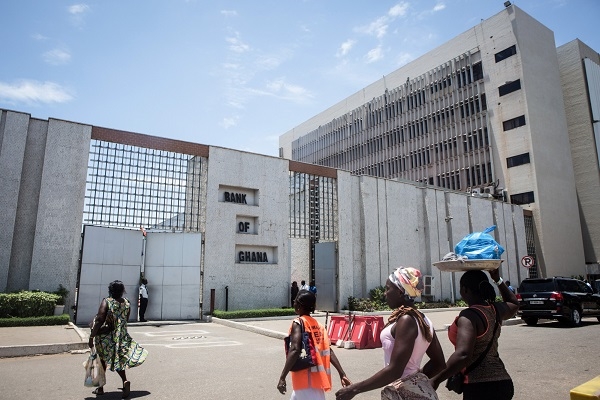


The Bank of Ghana has maintained the policy rate at 27% during its first Monetary Policy Committee (MPC) meeting of 2025, held on January 27. This decision comes amid fluctuating economic conditions and rising inflation trends, particularly in food prices [f9bd9844].
Governor Dr. Ernest Addison highlighted that while the global economic growth forecast has been revised to 3.3% for 2025, Ghana's economy showed resilience with a GDP growth of 6.3% in 2024. Consumer and business confidence have also improved, contributing to a more stable economic environment [f9bd9844].
Despite these positive indicators, the banking sector is facing challenges, with the Non-Performing Loans (NPL) ratio remaining high at 21.8%. However, the sector continues to be profitable, and international reserves have increased to US$8.98 billion, providing a buffer against external shocks [f9bd9844].
The Cedi depreciated by 19% against the US dollar in 2024, reflecting ongoing pressures in the foreign exchange market. The MPC's decision to keep the policy rate unchanged aims to balance the need for economic growth while addressing inflation, which is projected to potentially decline towards a target range of 8±2% [f9bd9844].
In a statement following the MPC meeting on January 28, Dr. Addison noted that the decision was influenced by elevated inflation driven by food prices and emphasized the importance of complementary fiscal and monetary policies to stabilize the economy amidst a stronger US dollar. He also pointed out that the external sector remains strong, supported by gold exports, although risks in the energy sector require monitoring [4c3ad101].
Recent insights from The Business & Financial Times underscore the necessity for coordinated fiscal and monetary policies to safeguard the economy against lingering external risks. The MPC acknowledged improvements in global economic conditions in 2024 but warned of potential impacts from shifts in US policy that could affect emerging markets like Ghana [921389c2].
The cedi experienced a significant depreciation of 24.8% in the first three quarters of 2024, stabilizing to a 19% depreciation by year-end. Inflation peaked at 25.8% in March 2024, ending the year at 23.8%. The GDP growth of 6.3% in the first three quarters was driven by gold production and private sector credit, despite the rising NPLs [921389c2].
As the Bank of Ghana navigates these complexities, the implications of its monetary policy decisions will be crucial for the country's economic trajectory, especially in light of the upcoming elections and the need for stable macroeconomic conditions. The inflation profile is expected to improve with fiscal consolidation efforts anticipated in the new administration's economic policy agenda [4c3ad101].